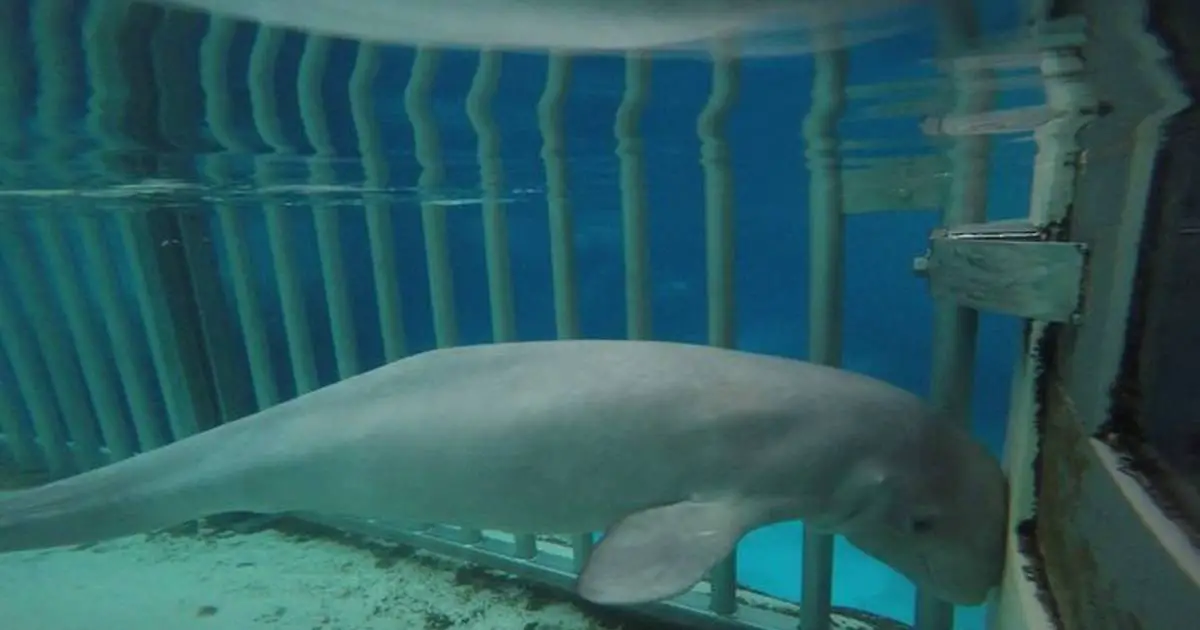Aquariums have been a popular attraction for decades, bringing the beauty and wonder of the ocean into our homes and public spaces. However, as the world becomes more conscious about animal welfare, an increasing number of people are questioning the ethics of keeping marine life in captivity. Are aquariums cruel? This is a complex topic that raises important questions about animal rights, conservation, and education. In this article, we will explore both sides of the debate and examine the evidence for and against aquariums.
There is no definitive answer to whether aquariums are cruel or not. While some people argue that keeping fish in captivity is cruel and stressful, others argue that aquariums provide a safe and controlled environment for fish to thrive in. Ultimately, it comes down to how well the aquarium is maintained and whether the fish are given proper care and attention. As long as the fish are healthy and happy, aquariums can be a great way to appreciate the beauty of marine life.

Are Aquariums Cruel?
Aquariums have been a popular attraction for many years. They offer a glimpse into the underwater world and allow us to observe sea creatures up close. However, there has been a growing concern over the years about whether keeping fish in captivity is cruel or not. In this article, we will explore the question, “Are aquariums cruel?” and look at the arguments on both sides of the debate.
Arguments Against Aquariums
There are several arguments against the keeping of fish in aquariums. One of the main arguments is that fish are not meant to be kept in captivity. Fish are wild animals that are used to roaming freely in the vast oceans. They need space to swim and explore their environment, but in an aquarium, their world is limited to the size of the tank. This can lead to stress and boredom, which can cause health problems for the fish.
Another argument against aquariums is that the water quality in tanks is often poor. In the wild, fish have access to clean, natural water. However, in an aquarium, the water can become contaminated with waste, uneaten food, and chemicals from the tank equipment. Poor water quality can lead to diseases and infections and can be fatal to the fish.
Benefits of Aquariums
Despite the arguments against aquariums, there are some benefits to keeping fish in captivity. One of the main benefits is that aquariums can help to educate people about marine life. Aquariums often have exhibits that showcase the different types of fish and their habitats. This can help people to appreciate the beauty and diversity of marine life and can inspire them to take action to protect it.
Another benefit of aquariums is that they can provide a sanctuary for injured or sick fish. In the wild, these fish would likely not survive, but in an aquarium, they can receive the care they need to recover. This can help to preserve endangered fish species and can contribute to the overall health of the marine ecosystem.
Arguments For Aquariums
There are also several arguments in favor of keeping fish in aquariums. One of the main arguments is that aquariums can provide a controlled environment for breeding fish. In the wild, many fish species are threatened with extinction due to overfishing and habitat destruction. Aquariums can provide a safe environment for these fish to breed and can help to increase their populations.
Another argument in favor of aquariums is that they can be used for scientific research. Aquariums can provide researchers with a controlled environment to study fish behavior and biology. This research can lead to a better understanding of marine ecosystems and can help to inform conservation efforts.
vs.
Despite the benefits of aquariums, there are also concerns about the impact of aquariums on the environment. Many of the fish that are sold in aquariums are caught in the wild, which can lead to overfishing and the depletion of wild fish populations. Additionally, the chemicals and waste produced by aquariums can pollute the environment and harm other marine life.
Conclusion
In conclusion, the debate about whether aquariums are cruel or not is a complex one. While there are arguments on both sides, it is clear that the care and well-being of the fish should be the top priority. Aquariums can provide educational and scientific benefits, but it is important to ensure that the fish are kept in a safe and healthy environment. Ultimately, it is up to each individual to decide whether or not they believe aquariums are ethical and humane.
Frequently Asked Questions
Are Aquariums Cruel? Here are some frequently asked questions about the topic along with their answers:
1. Is keeping fish in an aquarium cruel?
It is not necessarily cruel to keep fish in an aquarium as long as their needs are met. In fact, aquariums can provide a safe and comfortable environment for fish that may not be available in the wild. However, it is important to ensure that the aquarium is properly maintained, is the appropriate size for the fish, and that the fish are not overcrowded. Additionally, it is crucial to research the specific needs of the fish species before keeping them in an aquarium.
Overall, aquariums can provide a great opportunity to learn about and appreciate aquatic life, but it is important to prioritize the well-being of the fish and ensure that they are not being exploited or mistreated.
2. Do fish feel pain in aquariums?
It is currently unclear whether fish feel pain in the same way that humans do. However, studies have shown that fish do have the physiological capacity to experience pain and stress. Therefore, it is important to handle and care for fish in a way that minimizes their stress levels.
When keeping fish in an aquarium, it is important to provide them with proper nutrition, a clean and comfortable environment, and appropriate stimulation. This can help to reduce their stress levels and ensure that they are not experiencing unnecessary suffering.
3. Is it ethical to keep fish in captivity?
The ethics of keeping fish in captivity is a complex issue that depends on the individual circumstances. While some argue that keeping fish in captivity can provide them with a safe and comfortable environment, others argue that it is unethical to remove them from their natural habitat and confine them to a small space.
If you are considering keeping fish in an aquarium, it is important to carefully consider the specific needs of the fish species and ensure that they are not being exploited or mistreated. Additionally, it is important to support conservation efforts and initiatives that aim to protect fish populations and their natural habitats.
4. What are the benefits of having an aquarium?
Having an aquarium can provide a range of benefits, both for the fish and for the aquarium owner. For the fish, an aquarium can provide a safe and comfortable environment that is free from predators and other threats. Additionally, watching fish swim and interact in an aquarium can be relaxing and provide a sense of calm.
For the aquarium owner, an aquarium can provide a hobby that is both enjoyable and educational. Aquariums can also be used as a decorative element in a room, adding a unique and interesting touch to the space.
5. How can I ensure that my aquarium is not cruel?
To ensure that your aquarium is not cruel, it is important to follow some basic guidelines. First, research the specific needs of the fish species you plan to keep and ensure that the aquarium is the appropriate size for the fish. Additionally, ensure that the water quality is properly maintained and that the fish are not overcrowded.
It is also important to provide the fish with proper nutrition and stimulation, and to handle them in a way that minimizes their stress levels. Finally, support conservation efforts and initiatives that aim to protect fish populations and their natural habitats.

The Truth About Aquariums: Don’t Lie To Our Children (5-minute version)
In conclusion, the debate over whether aquariums are cruel or not remains a controversial issue. While some argue that aquariums provide educational and conservation opportunities, others criticize them for the confinement of animals and the potential harm to their health and well-being.
However, it is important to note that not all aquariums are created equal. Some facilities prioritize the welfare of their animals through spacious habitats, enrichment activities, and expert care. Conversely, others prioritize profit over animal welfare, leading to poor living conditions and neglect.
Ultimately, the question of whether aquariums are cruel or not depends on the specific facility and the care provided to its animals. As consumers, it is important to do our research and support only those aquariums that prioritize the welfare of their animals.
